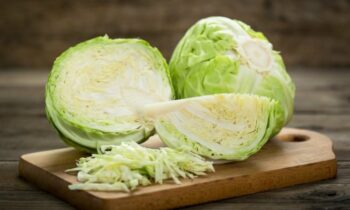- Eating in excess of five servings of meat week by week might be connected to higher disease hazard, research proposes.
- Information showed men, explicitly, had lower paces of specific diseases assuming that they were veggie lover or pescetarian.
- Factors like eating more plants and having a solid weight might have an effect, one specialist says.
Regardless of whether you’re an energetic steak or chicken sweetheart, new exploration emphatically suggests doing without meat essentially a couple of days out of each week. Specialists from the University of Oxford report consuming meat multiple times or less each week is related with a lower by and large malignant growth hazard. From a more extensive perspective, the review shows the less meat you eat, the lower your gamble of creating malignant growth.
Individuals who eat less meat or stick to vegan diets might have a lower hazard of specific malignant growths, proposes a review distributed for the current week in BMC Medicine.
Scientists from the University of Oxford examined information from 472,377 grown-ups in the UK, matured 40-70, who didn’t have disease toward the beginning of the review. During a normal of 11 years of follow-up, the analysts contrasted the paces of disease determined to have to information on how frequently they ate meat, including handled meat, hamburger, pork, sheep, and poultry. Fish was incorporated as a different classification.
Specialists investigated a significant dataset enveloping 472,377 British grown-ups (ages 40-70) who had been enlisted for the UK Biobank program somewhere in the range of 2006 and 2010 to arrive at this resolution. In those days, every individual detailed how frequently they normally ate meat and fish. Concentrate on creators then, at that point, surveyed disease rates and judgments among concentrate on subjects over the accompanying 11 years. Significantly, other possibly persuasive factors like diabetes status, as well as sociodemographic, financial, and way of life contemplations, were totally represented by specialists while making their computations.
(By and large). Individuals who ate fish, however not meat, had a 10% lower hazard, and the people who ate meat less often had a 2% lower hazard.
For specific kinds of malignant growth, the thing that matters was much more critical and a shock to scientists, Cody Watling, lead creator of the review and a PhD understudy at Oxford, told Insider.
In contrast with those eating meat in excess of multiple times week by week, generally malignant growth hazard among members was two percent lower for individuals eating meat multiple times or less each week. It was an entire 10 percent lower among those eating fish yet not meat, and 14 percent lower for veggie lovers and vegans.
What might be said about explicit malignant growths? Whenever the occurrence paces of different malignant growth assortments were contrasted and members’ eating regimens, scientists observed those eating meat multiple times or less week by week had a nine percent lower hazard of colorectal disease. Additionally, hazard of prostate disease dropped by 20% among men eating fish yet no meat, and by 31% for male veggie lovers.
The greatest shift was the prostate malignant growth hazard for veggie lover or pescetarian men, who had a 20-31% lower hazard than their meat-eating partners. For ladies, a veggie lover or pescatarian diet biggestly affected decreasing their gamble of postmenopausal bosom disease.
Watling said one theory to clarify the orientation uniqueness is that men are regularly less wellbeing cognizant, as indicated by earlier examination, and might be adopting a less sound strategy to their meat-focused dishes. “It may be the case that ladies, regardless of whether they follow a customary meat eating diet, are eating all the more entire grains, men might be eating more handled meats,” he said.
At last, the examination group alerts that this work is observational in nature, and hence can not lay out an obvious causal connection between meat eating and malignant growth hazard. For on, concentrate on creators might want to see more examination set together regarding this matter. In a perfect world, future tasks will include bigger populaces along with longer subsequent periods.
The review is observational, and that implies the examination is certainly not an ideal evaluation of what meat eating means for malignant growth hazard. Many variables could clarify the connection, including in general way of life, Watling said.
For example, veggie lovers and vegetarians will generally have a lower weight list (BMI), or tallness to weight proportion, proposing lower paces of corpulence, a realized gamble factor for malignant growth. This mostly clarified the different in bosom malignant growth rates in the review, Watling said.
“There may possibly be a lower hazard for people who prohibit meat, yet to follow a solid eating routine, you don’t really need to avoid meat,” Watling said. “Propensities like eating entire grains, vegetables and vegetables, and keeping a solid weight are things we should all do whether or not we’re veggie lovers or meat-eaters.”
Vegans and pescatarians additionally would in general be more youthful, were bound to be school taught and genuinely dynamic, and all the more regularly had never smoked tobacco. They additionally announced drinking less liquor, which is a known disease causing substance,



